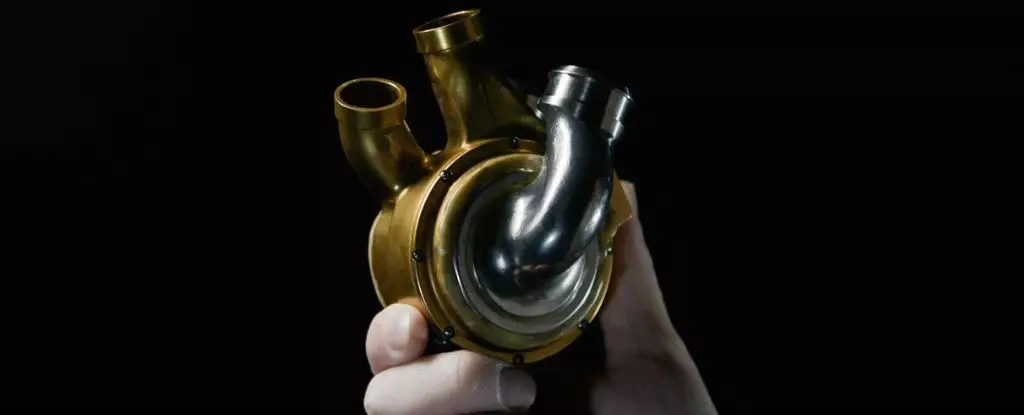Recently, a 58-year-old man in the United States made history by becoming the first person in the world to have his failing heart replaced with a temporary, titanium blood-pumper. This groundbreaking achievement heralds a new era in the field of cardiology, as this metal organ, designed by BiVACOR, aims to replace the full function of a human heart for as long as possible.
BiVACOR’s Total Artificial Heart (TAH) differs from traditional artificial hearts in that it does not attempt to mimic the beating of a real heart. Instead, it relies on a double-chambered device that is about the size of a fist and boasts a virtually unbreakable design. The heart is powered by a single, magnetically levitating rotor that propels blood to the lungs and throughout the body without the risk of friction-induced damage. This innovative design aims to provide a sustainable solution for individuals with end-stage heart failure.
After years of development, the BiVACOR artificial heart was successfully implanted in a living patient without complications at Baylor St. Luke’s Medical Center at the Texas Heart Institute. The device performed admirably for eight days until a donor heart became available, showcasing its efficacy in sustaining life. With FDA approval secured for additional patient implants in the near future, the potential impact of BiVACOR’s design on the field of artificial hearts is immense.
Currently, the best treatment option for severe heart failure remains a real donor heart, but the limited availability of organs poses a significant challenge. With less than 6,000 heart transplants occurring annually worldwide, the demand for alternative solutions like artificial hearts is on the rise. While the SynCardia Total Artificial Heart represents a notable advancement in this area, its limitations underscore the need for more durable and long-lasting options like the BiVACOR heart.
The BiVACOR artificial heart stands as a “paradigm shift” in artificial heart design, with the potential to transform the landscape of cardiac care. With ongoing clinical studies demonstrating the device’s longevity and reliability, the future looks promising for patients with end-stage heart failure. As technology advances and new developments emerge, the possibility of a commercially viable, long-term mechanical replacement for the failing human heart becomes increasingly feasible.
The advent of the BiVACOR artificial heart represents a significant leap forward in the field of cardiology, offering hope to individuals in need of life-saving interventions. With its innovative design, clinical success, and future prospects, this titanium blood-pumper has the potential to revolutionize the way we approach heart failure treatment. As research continues and advancements are made, artificial hearts may soon become a mainstay in the fight against cardiovascular disease.


Leave a Reply